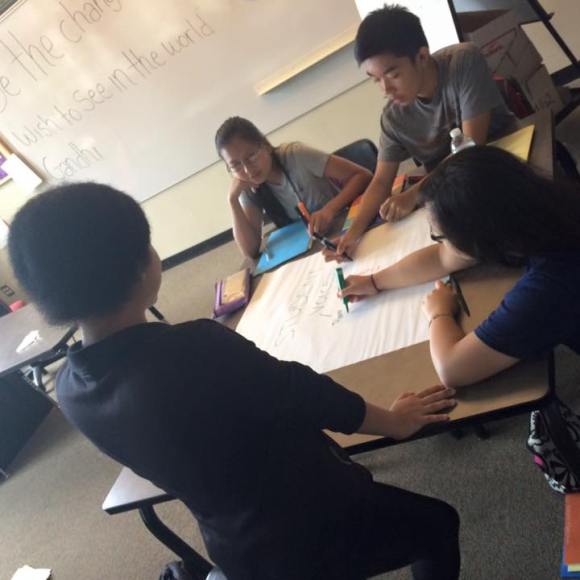
A commitment to engage students as partners requires educators and students work together to ask critical questions that examine the assumptions behind student voice. The following are essential questions in this process that can help with planning and examining activities, projects and outcomes.
Essential Planning Questions
Question 1: Why will students be meaningfully involved?
- Have students identified if they want to be meaningfully involved? If so, why do students want to be meaningfully involved? If not, why not?
- Have adults identified why they want to meaningfully involve students? If so, why do adults want students to be meaningfully involved? If not, why not?
- Is meaningful student involvement seen as a learning tool? Is it being utilized as a pathway for students to successfully meet classroom goals
Question 2: How will students be meaningfully involved?
- What specific duties/tasks/assignments will students have?
- How will adults be involved?
- How does meaningful student involvement relate to the school’s climate?
- How does meaningful student involvement relate to formal school improvement activities?
Question 3: Who will be meaningfully involved?
- Is the activity for traditionally or nontraditionally involved students? If it is for nontraditionally involved students, how will their involvement be ensured? How will it be sustained?
- Is there equal representation from across the school/class/group of students targeted?
Question 4: What will students be meaningfully involved in?
- Have clear goals or a distinct purpose been identified for students to be meaningfully involved in?
- Are there parameters for students, do they have complete autonomy, or are the roles for students clearly defined ahead of their involvement?
- Is there a distinct plan for educating, reflecting and assessing student involvement?
Question 5: When will students be meaningfully involved?
- Is the activity in-class, during class time, during the school day, directly after school, in the evening, on the weekends, or during a break?
- What accommodations have been made in order to acknowledge the specific nuances of student schedules, i.e. homework, transportation, lost seat time, etc?
- How often will meaningful involvement occur within the student’s educational career? During one day? Throughout a week? In a quarter or semester? Throughout one school year? Beyond?
Question 6: Where will students be meaningfully involved?
- Are students meaningfully involved in their local school in addition to other educational environments?
- Who controls the environments where meaningful student involvement will occur? How do they affect meaningful student involvement?
- Do students have opportunities to become meaningfully involved throughout their communities?
Summary
When your class or group has completed these critical questions, step forward into planning how to move students from traditionally passive roles towards those of active, engaged partners throughout schools.
If you’re interested in continuing to plan your approach to Meaningful Student Involvement, we suggest you use our tool called Meaningful Student Involvement Planning Guide.
Related Content
- Preparing for Meaningful Student Involvement
- People Affected by Meaningful Student Involvement
- Places Meaningful Student Involvement Can Happen
